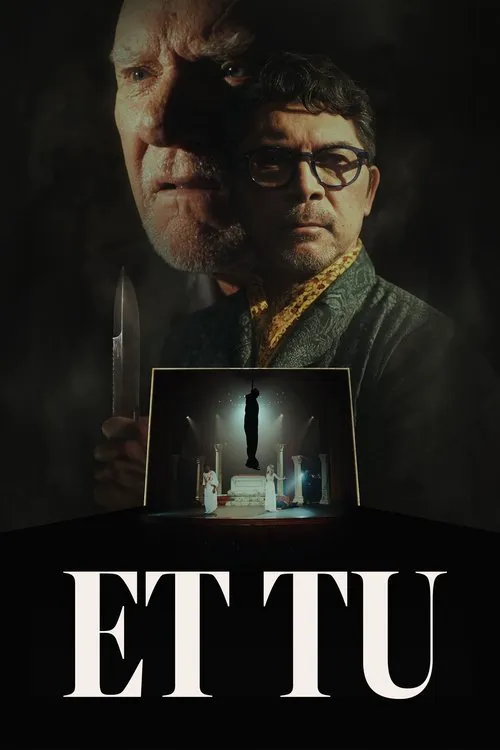Et Tu

Plot
Et Tu, Brute is a dark comedy-drama film released in 1970. The movie is inspired by Albert Camus's concept of "the absurd" and serves as a metaphor for the breakdown of sanity in the face of societal pressures and expectations. Director John Howard is preparing for a stage production of William Shakespeare's Julius Caesar at the local theater, with its lead actor, Norman Thayer, delivering a somewhat unremarkable portrayal of the titular character. As rehearsals progress, Howard becomes increasingly frustrated with Thayer's lack of conviction in the role. He begins to see parallels between the themes in Caesar and his own life, and how the character's fate mirrors his own feelings of betrayal and disillusionment. Thayer, oblivious to Howard's anxieties, appears more concerned with the logistics of the production and the intricacies of the Shakespearean script. Things take a turn for the worse when Howard becomes convinced that Thayer is emulating his own mannerisms and speech patterns on stage, blurring the lines between reality and performance. As the director's grip on reality falters, the boundaries between his own life and the play begin to dissolve. He confuses his personal relationships and encounters with characters and events from the play, further exacerbating his mental state. In the midst of this chaos, Howard's relationships with his colleagues and actors begin to fray. The cast and crew grow increasingly concerned about the director's stability, while Thayer continues to focus on his performance and the requirements of the play. Despite the chaos around him, Thayer's commitment to his role becomes an all-consuming force, drawing him further into the world of the play. As the production reaches its climax, Howard's obsession with Julius Caesar reaches a fever pitch. He begins to envision the play as a reflection of his own life, with the characters and events serving as a twisted commentary on his own experiences of betrayal and disillusionment. This blurring of lines between reality and performance culminates in a series of surreal and disturbing events, ultimately pushing Howard's mental state to the breaking point. Throughout the film, director Peter Medak uses a blend of satire and dark humor to explore the pressures and expectations placed on artists in the entertainment industry. By drawing parallels between the themes of Shakespeare's play and the breakdown of the director's sanity, Et Tu Brute offers a scathing critique of the societal expectations that can drive individuals to madness in their pursuit of creative expression.
Reviews
Recommendations




